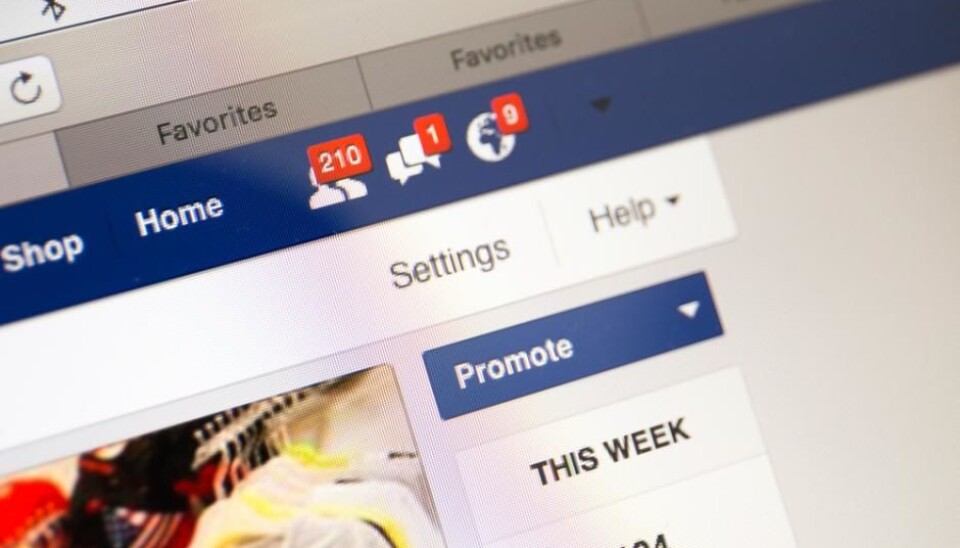
Facebook is not about stimulating Democracy
OPINION: Facebook is a social media outlet designed to make money on user traffic and attention--stimulating democracy is not part of the business model. But censoring freedom of speech, may well be.
Facebook is receiving flak these days for serving as a broker of misinformation and false news stories, which may have influenced the outcome of the recent US election. But Facebook is a social media outlet designed to make money on user traffic and attention--stimulating democracy is not part of the business model. But censoring freedom of speech, hence undermining deliberative democracy, may very well be part of the business model given the latest news of Facebook´s move on China.
Community Standards and Editorial Polices
Let’s be clear: Facebook was never a free marketplace for opinions. There are limits to what you are allowed to say given the "Community Standards," which have probably only been read by a select few while setting up their Facebook account. The standards reveal that hateful content directly attacking people on basis of race, ethnicity, national origin, religious affiliation, sexual orientation, sex, gender, or gender identity, serious disabilities or diseases will be removed but ... "we allow humour, satire, or social commentary related to these topics." What will remain and what will be removed from walls is an editorial decision relying exclusively with Facebook.
From time to time, Facebook has received severe flak for their editorial practices--especially as of late given the recent US election and the proliferation of misinformation and bogus news stories designed to swing voters and rig the election.
Now, Facebook may indeed be viewed as a private media outlet with roughly 1.8 billion journalists in terms of users and the public spheres they are able to address. Since it is a private organisation, the editorial policy, and the way in which it is administered, is at company discretion rather than a state or public matter. One may disagree with policy, practice, and what often enough seems to be a rather perfunctory way of dealing with their own standards, the truth, facts, and the reliability of news stories. But, on the other hand, state governed mind control of citizens and companies in a liberal democracy is mixing a cocktail of oil and water.
Censorship and Freedom of Speech
When Facebook decides to censor a post, or a group, there is routine outcry that freedom of speech has been violated. First of all, there is no such thing as unconstrained freedom of speech on Facebook, which is exactly what the "Community Standards" are there to state. Secondly, one's freedom of speech is only violated if the case arises that if you can't get published or congregate on Facebook, you can't voice your opinion or meet your kindred spirits anywhere.
If your post is removed from Facebook it doesn't entail that you are barred from getting your message out. You may establish your own server with online access or try your post on some other online platform. If a certain newspaper doesn't want your opinion piece you are free to submit it somewhere else. If that fails too, you can try a carrier pigeon or walk door to door with your message. None of this has anything to do with freedom of speech and democracy.
But Facebook is apparently about to do something, which has everything to do with freedom of speech and democracy. Back in 2009 Facebook was banned in China but there are reports that the company has been trying to find its way back into the Chinese market ever since. New York Times recently revealed that Facebook is supposedly working on a censorship tool which could be made amenable to China’s censorship policies. Apparently, the Chinese market is just too big to be ignored--there’s potentially quite a percentage to be made here.
Facebook First, Democracy Second
In a liberal democracy it may very well be that Facebook, as a bi-product, may stimulate democratic discourse and the ability of the public sphere to develop, refine and adjust political, social, or cultural relations between human beings. But Facebook's business model is based on online traffic and on being one of the central actors in the power distribution of online attention. A few big actors have virtually all the traffic on the internet and everybody else are merely scrambling for what is left. That includes the users too. Attention online doesn't follow a normal distribution but a power law in which the big get bigger even though everybody nowadays has a private bullhorn to shout at the world. Shouting is not the same as being heard, and the ones who shout the loudest typically get the greatest share of the attention--right or wrong. That is how it is with power distributions. The right to express yourself is not the same as the right to be heard.
Facebook has potency--together with Google, Instagram, YouTube, and a few others. That has to do with Facebook's business model and its title as the biggest social media platform in the world. But the business model has very little to do with, per se, stimulating democracy, freedom of speech, and the free marketplace of opinion in the public sphere. True, these features may be derived effects of the world's biggest media outlet. An outlet which has editorial policies and maintain complete control over these policies. And sometimes Facebook does indeed make a mess administering the policies, like most other media outlets.
Thus, Facebook may innerve freedom of speech and democracy as bi-products, but, as the potential move to re-enter the Chinese market suggests, if freedom of speech is an impediment to profit, then Facebook will offer tech to install censorship and secure the bottom line and sell out democracy. Business first, galvanizing democracy a distant second--if at all.
------------
Read the Danish version of this story on Videnskab.dk











